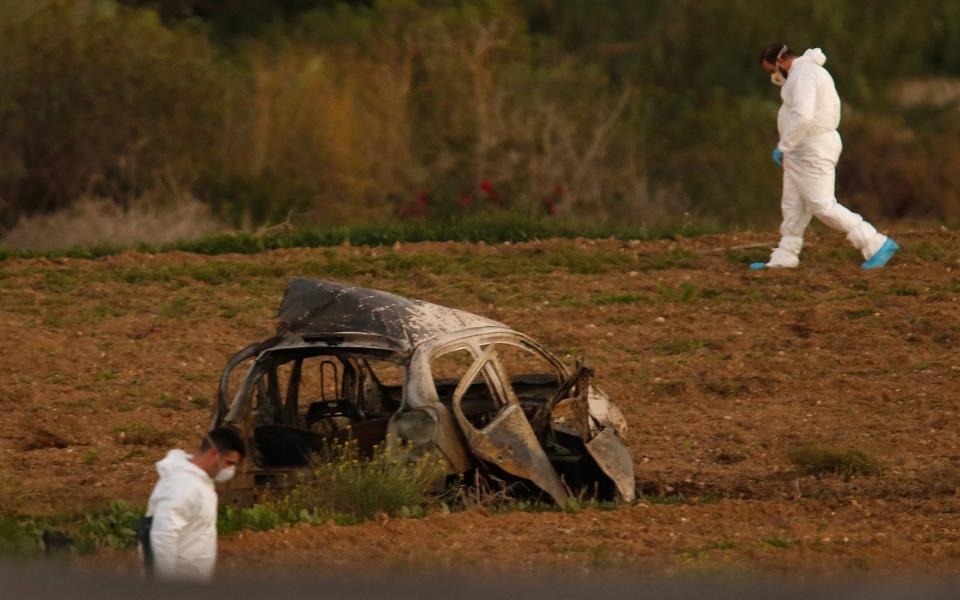Maltese government 'should carry responsibility' for the murder of Daphne Caruana Galizia

The Maltese state must bear responsibility for the murder of anti-corruption journalist Daphne Caruana Galizia because it created a "culture of impunity" that made the killing possible, an independent inquiry has found.
Caruana Galizia, who was widely known in Malta for reporting on allegations of high-level graft, was killed by a bomb planted beneath her car as she drove home on October 16, 2017.
Her assassination caused a political firestorm in Malta and eventually led to the resignation of the prime minister, Joseph Muscat, after a businessman with close ties to his government was arrested and charged with organising the murder in 2020.
Mr Muscat himself has never been accused of wrongdoing.
But the public enquiry, which he set up shortly before he resigned, concluded that his government had presided over a "collapse in the rule of law" that directly contributed to the murder.
"The state should shoulder responsibility for the assassination," retired judge Michael Mallia, former chief justice Joseph Said Pullicino, and Madam Justice Abigail Lofaro said in a 70,000-word report published on Thursday.
"It created an atmosphere of impunity, generated from the highest echelons of the administration inside Castille [the prime minister's office], the tentacles of which then spread to other institutions, such as the police and regulatory authorities, leading to a collapse in the rule of law."
They said it was also clear that the assassination was either intrinsically or directly linked to Caruana Galizia's investigative work, and that the state failed to recognise the real and immediate risks to her life or take steps to protect her.
Matthew Cauana Galizia, her son, declined to comment in detail on the report until he had read it in full.
However, he told The Telegraph the finding that there was a "culture of impunity" was in line with his understanding of events, and that it would be impossible for Mr Muscat to disown the result of the inquiry.

"That is what we have been saying all along. And I think it is what people in Malta understand to be the situation. The debate was never whether or not there was impunity but over the value of my mother's life," he said.
"The board of enquiry was chosen by the prime minister, the terms of reference were chosen by the prime minister. There was a process of negotiation with my family, but this enquiry was commissioned by him. So he cannot un-endorse it after the fact," he said.
Robert Abela, who succeeded Mr Muscat as prime minister and leader of the island's Labour Party in 2020 and who published the report, said it "merits mature analysis".
"Lessons must be drawn and the reforms must continue with greater resolve," he wrote on Twitter.

Yorgen Fenech, the businessman who prosecutors believe masterminded the murder, was arrested in 2020 and is still awaiting trial. He denies all charges.
Vince Muscat, no relation to the former prime minister, admitted to being one of the hitmen and pleaded guilty to charges of murder and conspiracy in February this year.
He received a reduced 15-year sentence in exchange for providing evidence to the police.
Two brothers who were arrested alongside Muscat in 2017, George and Alfred Degiorgio, are still awaiting trial and have requested presidential pardons.
A self-confessed middle man was pardoned after turning state witness.
Three further suspects were arrested on the basis of Muscat's evidence when he entered his guilty plea in February.

 Yahoo News
Yahoo News 
